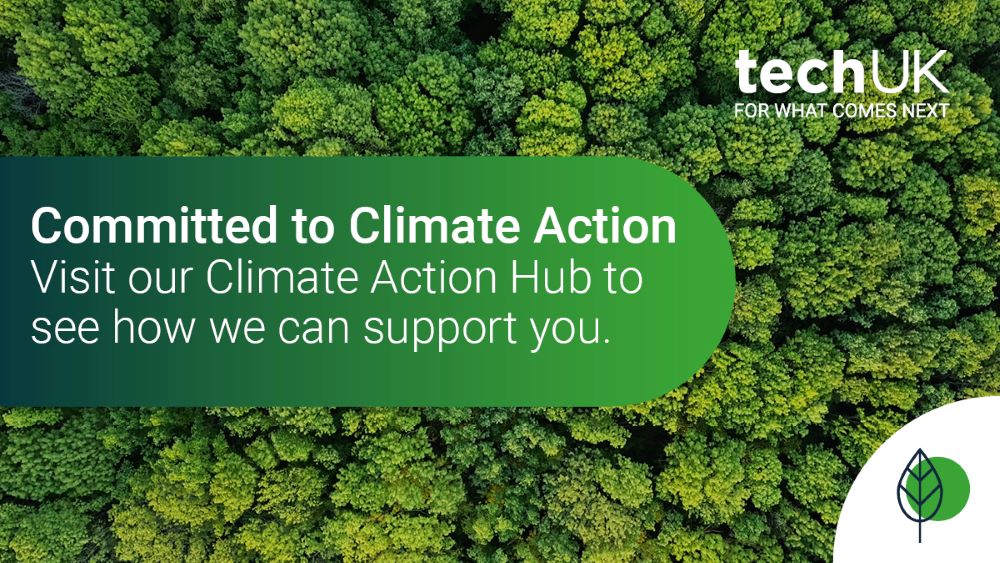Carbon literacy - get smarter about sustainability
“I think people can feel really daunted in terms of what they can do,” Crapper said, about the often-overwhelming nature of tackling climate change. “It made me feel really empowered and informed in the decisions I can now take.”
For Crapper, the training prepared her to engage with her clients on climate change. And it’s just one example of how Kyndryl is getting smarter about sustainability.
Kyndryl is piloting an interactive framework from the Carbon Literacy Trust to professionals across the company to better understand how human action fuels climate change and what society can do to reduce planet-warming greenhouse gas emissions.
Operating as one of the world’s largest data center providers means leading by example. From its inception, Kyndryl has worked to build a culture that focuses on sustainability. The company has already enabled the annual generation of 18,000 MWh of solar capacity and will grow the renewable energy component across its portfolio to 75% for data centers within the coming years.
Kyndryl’s belief is that operating responsibly works in tandem with growing its business, deepening partnerships and collaborating with the best talent. As Kyndryl grapples with its role in a more sustainable future, customers face the same challenge as they seek out solutions. Today, most of the world’s largest companies issue sustainability reports and are increasingly signing on to net-zero pledges. As of 2020, 88% of publicly traded firms had ESG (environment, social and corporate governance) initiatives in place.
Carbon Literacy training helps Kyndryl professionals connect with customers as they undertake these sustainability journeys, and it’s one reason participants are recommending the programme to colleagues.
Suzanne Cockaday, a Kyndryl infrastructure services leader based in the U.K., completed the Carbon Literacy course and thinks it’s important others do as well. Because, she said, “there’s probably no bigger single agenda item on the world stage than climate change.”
The Carbon Literacy Project was developed by the nonprofit Carbon Literacy Trust, and began in Manchester where daily life was long ago transformed during the Industrial Revolution. Carbon Literacy at Kyndryl covers the latest in climate science and the link between human action and climate change. Through the training, professionals learn the importance of reducing carbon footprints – on an individual and organisational level.
Training also includes discussion about environmental justice and the acknowledgement that the effects of climate change may disproportionately impact already vulnerable communities – meaning that although some may be facing the same storm, they may not be in the same boat.
“We see Carbon Literacy, quite simply, as a core workplace competence,” said Phil Korbel, co-founder of the Carbon Literacy Project. “Kyndryl is a world first in its sector to deliver Carbon Literacy training and we look forward to seeing how their expertise and commitment to this agenda sees climate action grow even faster.”
As of August, Kyndryl UKI achieved bronze Carbon Literate Organisation status, an accreditation from the Carbon Literacy Trust that recognises Kyndryl’s Carbon Literacy education programme for its employees and the participation of its leadership. The award marks Kyndryl’s commitment to Carbon Literacy and a low carbon culture.
In the UK, as in many other countries, most people now acknowledge global warming is happening, according to research conducted by YouGov. And an Office for National Statistics survey discovered that three-quarters of adults in Great Britain are worried about climate change, with some reporting that they feel helpless about the future of the environment. Growing the ranks of the Carbon Literate is one way to actively involve citizens in reducing the carbon emissions that contribute to climate change.
That’s why the programme culminates with personal and professional pledges to take action. Pledges may include efforts such as reducing food waste, committing to an electric vehicle or continuing the climate conversation with others.
Carbon Literacy training is a hopeful approach to inspiring change, said Dominic Nolan, the project’s leader at Kyndryl. “As an individual it’s important to have some agency,” Nolan said. “I think it’s about empowerment.”
For Kyndryl participants, the idea behind Carbon Literacy is to empower them to not only watch but participate – both personally and professionally – in the cultural shift toward sustainability.
techUK - Committed to Climate Action
Visit our Climate Action Hub to learn more or to register for regular updates.
By 2030, digital technology can cut global emissions by 15%. Cloud computing, 5G, AI and IoT have the potential to support dramatic reductions in carbon emissions in sectors such as transport, agriculture, and manufacturing. techUK is working to foster the right policy framework and leadership so we can all play our part. For more information on how techUK can support you, please visit our Climate Action Hub and click ‘contact us’.


